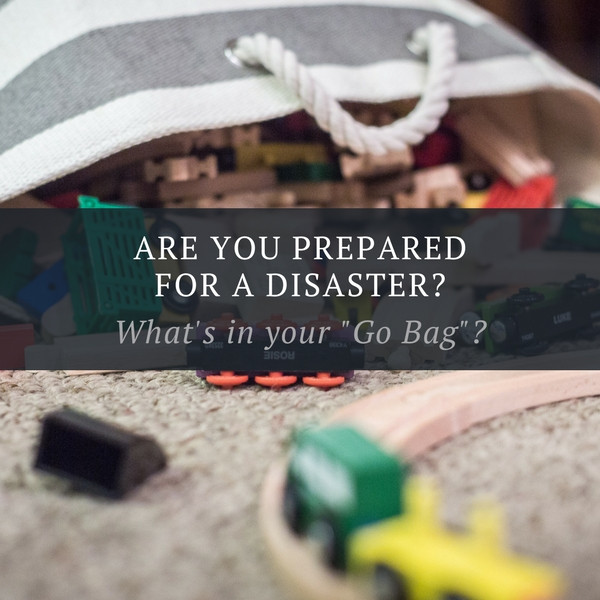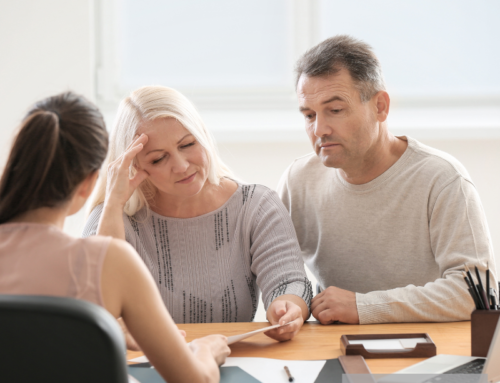Are You Prepared for a Disaster?
Nora Smith, Information Services Manager
This Holiday season, so many of us are watching the news helplessly as the fires rage in California and thousands have been forced to leave their homes. The ongoing natural disaster in the West comes on the heels of a horrific Hurricane season that displaced countless people and massive destruction in many States.
Watching these disasters unfold over these last few months’, has brought back memories of leaving my home with just the clothes on our backs the morning Hurricane Agnes hit the Southern Tier of NY (where JGUA Headquarters are located) on June 23rd 1972. My dad, who was a volunteer fireman, decided to stay in the house and then struggled to get out as water came gushing up from the basement through the heat registers. About 12 hours later were all reunited but it is I day I will always remember.
Having lived through a monumental disaster once in my life you would think that I would be prepared to leave my home at a moment’s notice again if I had to – well I’m not. This realization has made me think that I’m likely not alone in being unprepared to leave my home at a moment’s notice.
Disasters can happen at any time- day or night, in any place and in many forms… A raging wildfire is nearing your home… A severe storm comes through your area and rips the roof off your house… You’re neighborhood floods and you have no choice but to evacuate… A house fire strikes your family home in the middle of the night…
When a disaster strikes, you will probably only have minutes to leave your home or minutes to return and retrieve important information after the fact. Ask yourself “How prepared am I?” Does your family have a “Go Bag”?
Your “Go Bag” should be an easy to carry water proof backpack, portable box, or other transportable container that has many of the important things you would need, but may not think of off the top of your head, if you ever had to leave your home quickly. Many hardware stores sell fireproof and waterproof file cases that could easily fit into a bag or box, further assuring that your important information is safe and protected no matter what.
I recommend putting each item in a separate labeled zip lock bag. Your “Go Bag” should be located in a central location that is easily accessible (not tucked away in the back of that closet you always mean to clean out…) and in a location you could easily describe to someone else if you weren’t able to retrieve it personally.
This is what is what is on the top of my list:
- Copies of Documents and phone numbers in a flame proof/water proof container:
- Documents should include:
- Insurance Cards
- Birth Certificates
- Real Estate deeds
- Photo ID’s
- Passports
- Titles for Vehicles
- Medical Information including details for your Healthcare provider and a list of medication(s) and dosage instructions for each family member
- Phone numbers should include:
- Your Financial Advisor – We recommend discussing protocol and plans should disaster strike with your Advisor well ahead of time. Your Advisor could be one of your best allies for handling the aftermath of such an event.
- Name/phone number(s) of your physician(s) and pharmacy
- Legal and Insurance professionals you work with or would plan to work with after a disaster.
- Utility companies who service your home
- All banking and credit card institutions you do business with
- Extra power banks for charging your cell phone
- Basic first aid kit
- Extra set of car keys and house keys
- Extra set of glasses, contacts, hearing aids and related supplies
- Mylar blankets, rain poncho, fresh set of clothes for each family member including warm hats and gloves
- A current credit card & $100 in small bills (Put credit card expiration date on a calendar so you can update as needed.)
- LED flashlight and batteries (check batteries periodically)
- Note pad and pens (permanent marker)
- Nonperishable food (energy or granola bars) and bottled water
The idea is to make sure that you have all of the information you would need to access readily available, plus supplies that would be useful in the time immediately following an emergency. This could be taken a step further to include a similar set up for your vehicle, recreational vehicle or vacation home.
There are resources available to help you further prepare and think through the things you should consider before you find yourself in harm’s way. Ready.gov is a National public service campaign designed to educate and empower the American people to prepare for, respond to and mitigate emergencies, including natural and man-made disasters. They offer their own guides for assembling a “Go bag” that we recommend you review at www.ready.gov/build-a-kit.
We all hope that disaster doesn’t strike in our own lives, but as I learned first-hand no one can be fully assured they’ll never experience destruction from a natural disaster. Watching the damage from the Hurricanes and Wild Fires that have impacted so many parts of our country over the last year, I’ve been reminded just how important it is to be prepared. I hope you’ll join me in taking the steps necessary to prepare a “Go Bag” for your family, even as we all hope to never find ourselves in harm’s way and do what we can to support those who do.







